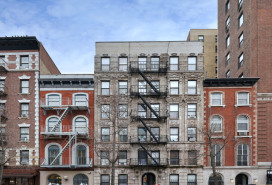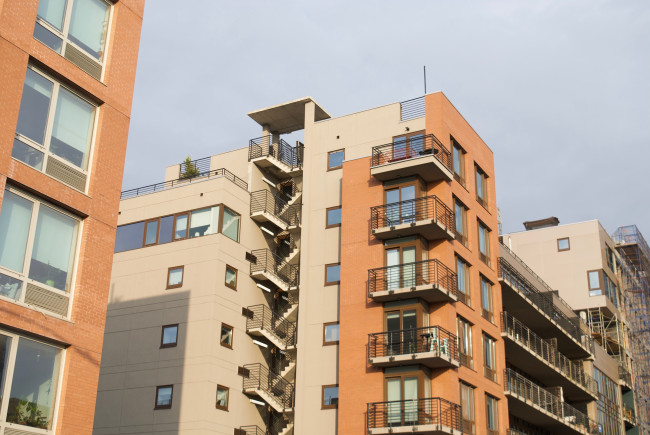How to rent out your condo: A guide for owners

This Upper East Side three-bedroom condo was on the sales market for $3,800,000 in 2018 and is now available as a rental for $10,500 a month.
If you’re a would-be seller holding off on parting with your NYC condo, co-op, or house until the sales market stabilizes, you may be considering renting out your place. Experts say this is a smart move.
You won't be alone: Some high-end condo owners are choosing to become landlords because they're unable to sell, while others are not even bothering to list their condos for sale and are going straight to the rental market because transactions at the upper end of the market have stalled.
Speaking on the Brick Underground podcast, Jonathan Miller, president and CEO of the appraisal firm Miller Samuel, says as high-end condo owners decide to list their places as rentals, rental prices are being pushed up even further.
“In the high end, the rents are rising faster and you are seeing listings that are not usually in the rental pool—and they are being snapped up because they are somewhat unusual,” he says.
If you are making the same calculations and want to rent out your apartment, these are the steps you need to take to make the process as smooth as possible.
Clear it with the board
Renting out your place can provide you with an income to offset your expenses but before you can step into the shoes of a landlord, you'll need to find out what the rules are in your building.
Condos are typically easier to rent out than co-ops because the board is more hands-off. In a co-op, it's a sublet arrangement and the board will be able to approve (or deny) your prospective tenant. Even in a condo, there will be rules to adhere to. At the very least, you can’t rent out an apartment for fewer than 30 days without being in the building at the same time.
Check your Certificate of Occupancy
Check the status of your Certificate of Occupancy—the document that determines how your building can be occupied. This is relevant for anyone wanting to rent out an apartment in a brownstone. The C of O needs to identify the building as a legal two-family.
If your tenants find out about a C of O violation they would be well within their rights to stop paying you rent.
Get up to speed on the rent laws
The rent reforms of 2019 set limits on the fees landlords can charge as well as gave specific deadlines and caps on the security deposit.
As a landlord, you cannot charge more than $20 for an application fee. This cost covers the background and credit check that you must give to your incoming tenant with a receipt. Your board may charge additional fees, like a move-in fee to cover the inconvenience of the elevator being preoccupied. You'll be able to pass on these fees to the tenant according to a Department of State memo.
One month's rent is all you can take as a security deposit and your tenant also has the right to an inspection of the apartment prior to move-in day. When they move out they can request another walkthrough and you’ll need to give an itemized statement of any charges you intend to take out of the security within 14 days. If you don’t meet this deadline you forfeit any right to keep part of the deposit.
Another consideration is a cap on late fees. Penalties for late rent payments can only be handed out to tenants if they are more than five days late with their payments and the fine can’t be more than $50 or five percent of the monthly rent, whichever is less. Setting up an easy rent collection method online would likely be helpful.
Price the apartment correctly
Compare asking rents on aggregated listing sites and be realistic about what the apartment is worth, so you don't end up with a rental sitting on the market as you keep lowering the asking price.
Keep in mind that if you're offering a rental during the slower winter months you may want to offer a concession—like a month's free rent or paying part or all of the broker's fee, which ranges from one month's rent to 15 percent of the annual rent. Note: In a major change sure to shock many owners, new guidance from the Department of State says landlords who hire a broker are now responsible for paying the broker fee.
Go the extra mile to find a responsible tenant
Enlisting a broker to market your apartment can also make it easier to execute the terms of the lease to meet your the board's requirements, supply the forms, and collect deposits.
Most landlords want to see a potential tenant earn 40 times the rent. It’s worth doing the same. If you're screening the tenant yourself, make sure to call the references you are given and follow through on credit and background checks. Personal references are especially important now that you can no longer use information from NYC housing court to reject a tenant.
Rent payment histories also don’t show up on credit reports, so ask for a letter of reference from a previous landlord. Ask for references from employers or other professional contacts as well.
If you want extra protection you might consider asking for a guarantor. Landlords typically look for someone in the tri-state area who can provide proof of income that is twice the income requirement for the prospective tenant, or an annual income of 70 to 80 times the monthly rent. There are also institutional guarantors like Insurent (a Brick Underground sponsor), which guarantees the lease at no cost to the landlord.
Draw up the lease
You can access standard residential lease agreements through the Real Estate Board of New York or the publisher Blumberg. The arrangement with your tenant needs to clearly spell out the terms including the monthly rent, length of occupancy, type of occupancy (i.e. number of people), move-in/move-out dates, damages, the deposit, the number and kind of pets allowed (if any), and extras such as responsibility for utilities.
You’ll have to customize the lease or add riders outlining your specific conditions, which might include an agreement about access to market the property if your tenant breaks the lease, access to amenities, policies about pets, smoking, subleasing, or maintenance. It's a good idea to consult an attorney on this.
Keep your records organized
It's important to keep your paperwork well organized, including leases and other important documents. You may be able to deduct some of the expenses from your taxable rental income, which means staying on top of the numbers. There are plenty of property management apps for landlords that help you log expenses and add photos of receipts so you are better prepared when it's time to file your taxes.
Have help on hand
As the owner of the apartment, you are responsible for making sure all systems within the unit work like plumbing, appliances, and heat. The front door and mailbox must have a working lock and you also need to make sure safety measures are in place including smoke detectors, carbon monoxide alarms, chain-door guards, and window guards.
You'll need to provide your tenant with a number to call for emergencies—your own number or that of a hired managing agent. You might want to avoid a common mistake of first-time landlords and hire a part-time super who, along with facilitating necessary repairs, can let you know about the upkeep of your place. Trying to find a handyman to fix a broken shower head or cabinet door within a short period of time can be complicated especially if you no longer live in the neighborhood.
Get the correct insurance
You’ll need to adjust your apartment insurance to reflect that the residence is now rented out and ask your tenant to take out a renter’s insurance policy too. Your tenant’s contents and liability will not be covered under your policy. It might also be worth providing for theft and damage in the updated insurance policy.
You Might Also Like

























